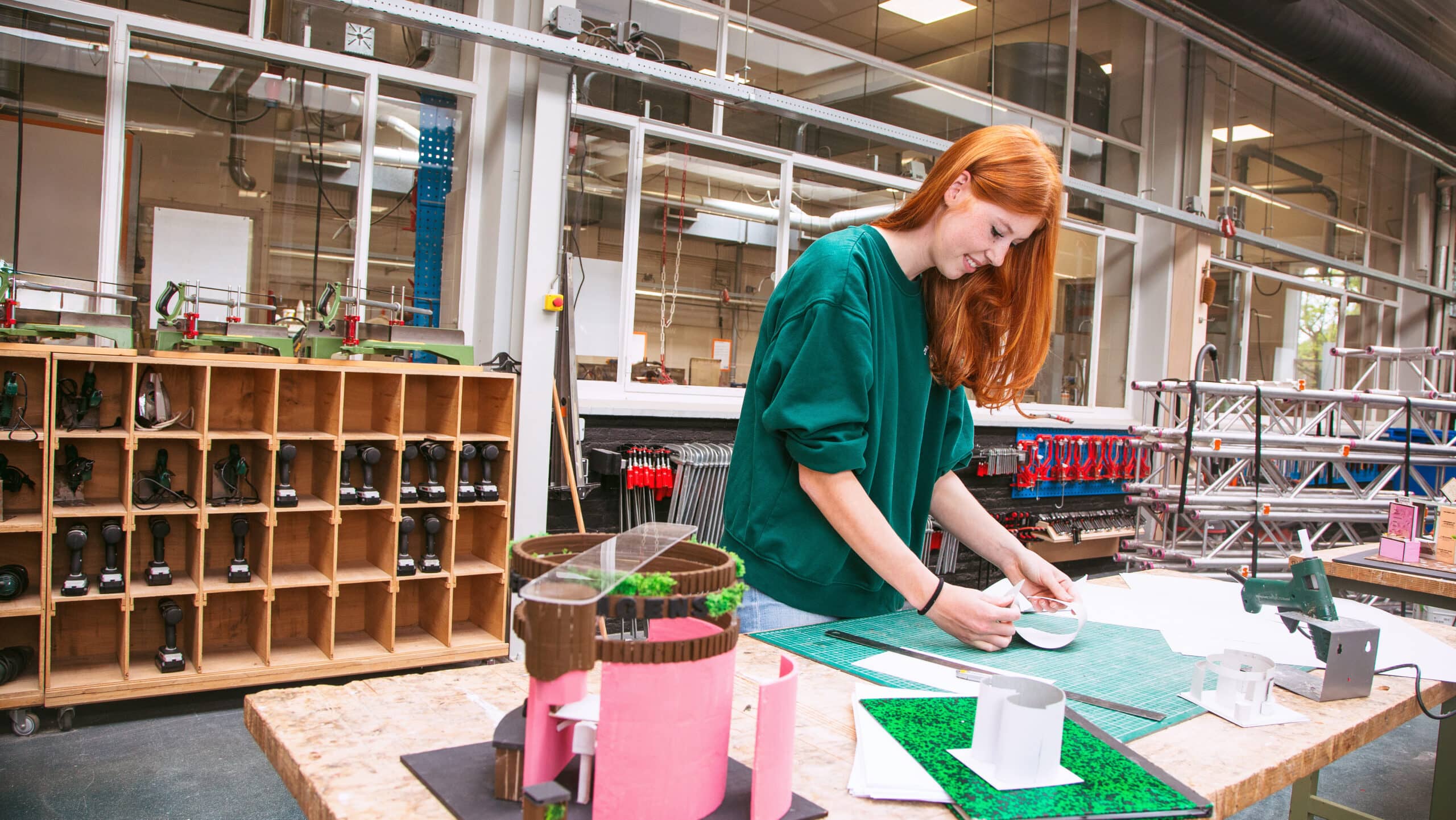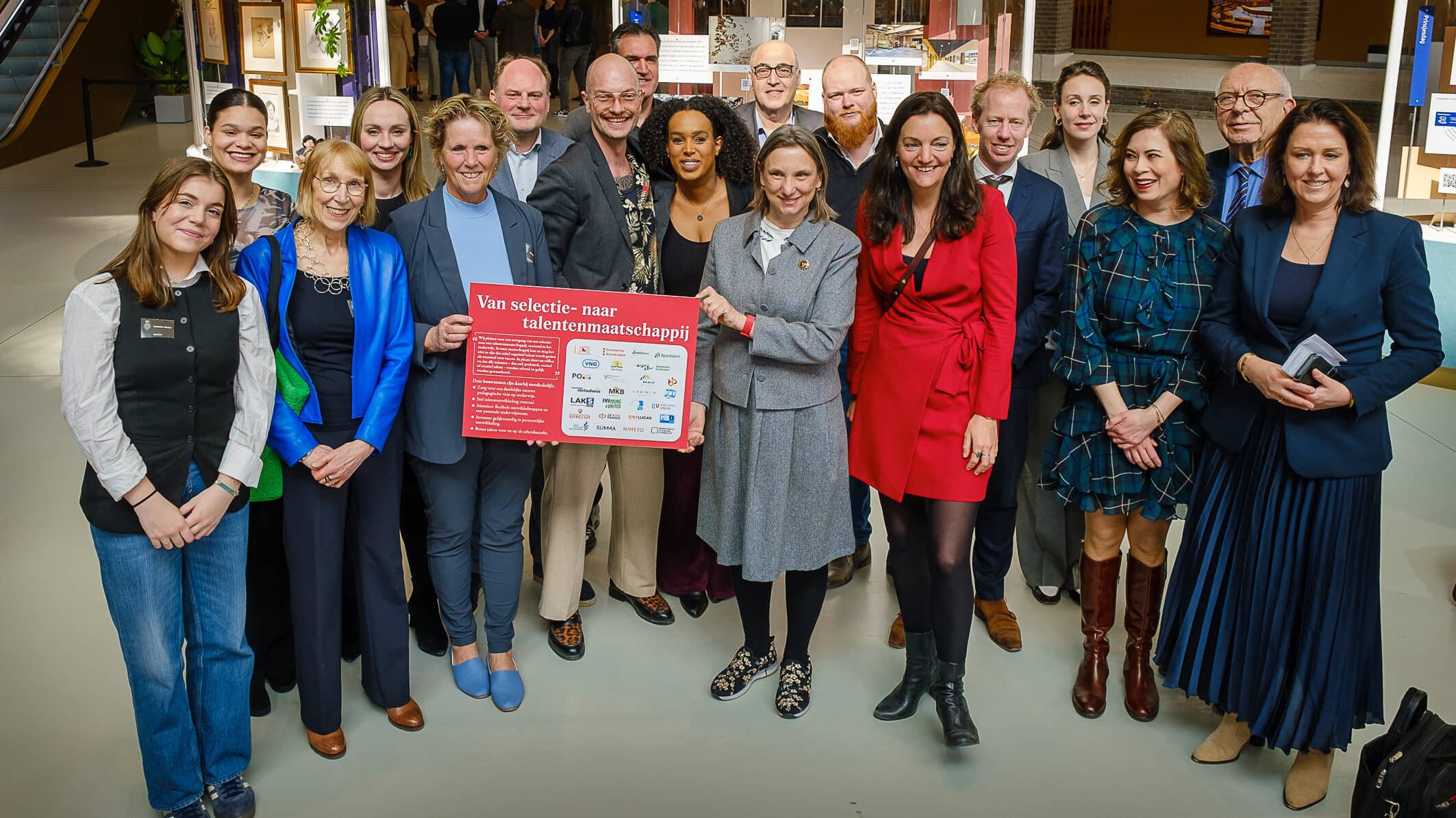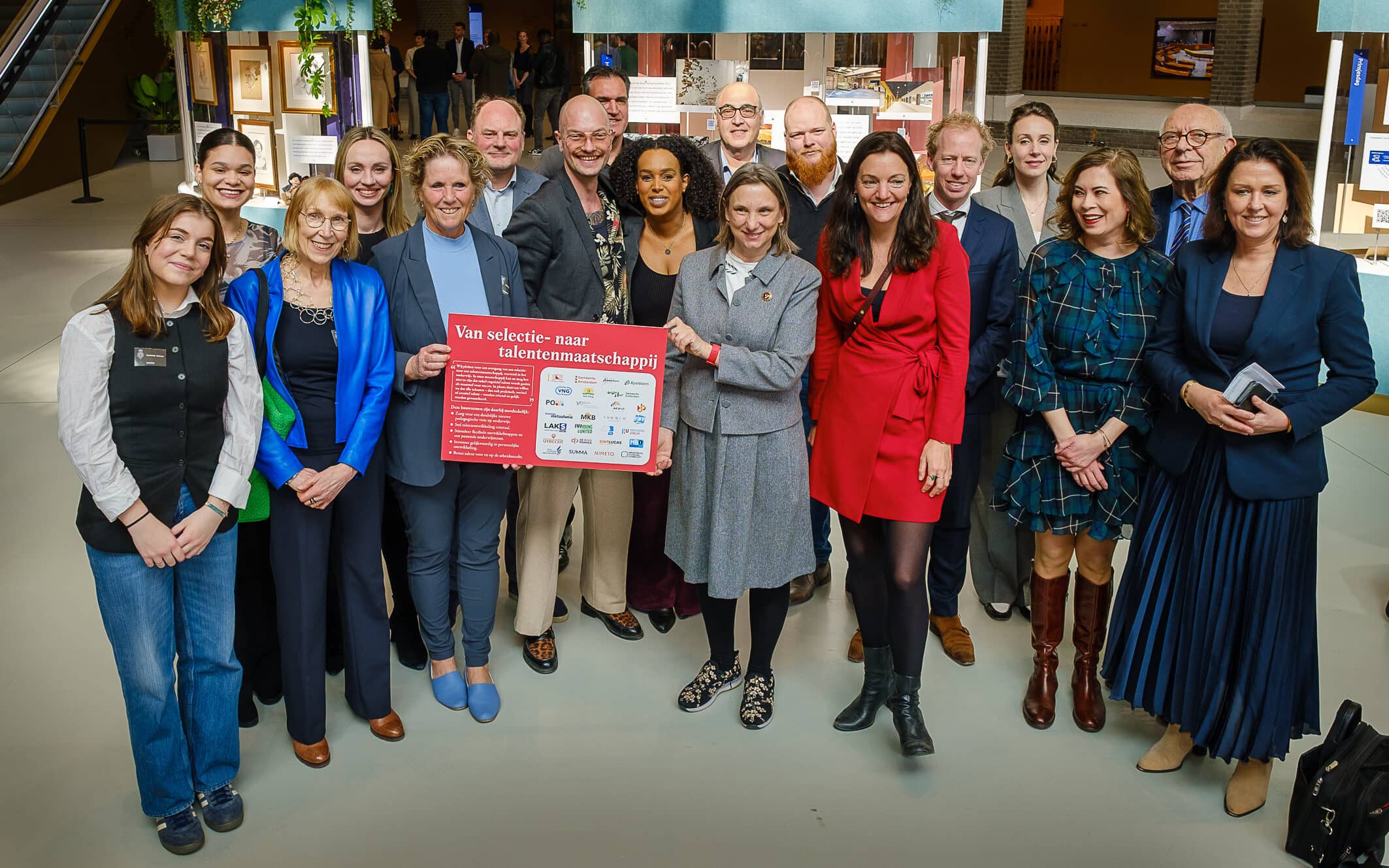MBO institutions, municipalities, youth and employers’ organisations call on politicians:
Ensure greater appreciation and equality for (v)mbo
It is time to work on the transition from a selection society to a talent society, in which not only theoretical talent is seen as a measure of success, but in which all talents – including practical, social or creative talent – are recognised and valued equally. This is what the mbo institutions SintLucas and Summa in the region, together with the municipality of Utrecht, the G4 and other municipalities, the VNG, the MBO-, VO- and PO-raad, MKB-Nederland, VNO-NCW, FNV, the LAKS and JOBmbo and other organisations, among others, are pleading for in an appeal to politicians in The Hague.
On Tuesday 25 March 2025, a large number of municipalities, youth, education and employers’ organisations will hand over their petition to the Lower House Committee for Education, Culture and Science. At its core is the need for a transition from a selection society to a talent society.
Those who attend a college or university have more years of education and more opportunities than young people at vmbo and mbo. The school trips of vmbo students and the study trips of mbo students usually stay within the Netherlands, they are often not allowed to participate (fully) in student life and there is less room for personal, social or professional development. They start working at a younger age – and therefore pay taxes and pay pension contributions earlier. There are also differences between how much is invested in students from the government. For instance, MBO students under the age of 18 do not receive student grants.
Inequality continues in the labour market. MBO graduates are lower graded and significantly less remunerated than people with a hbo or wo degree. In addition, mbo graduates are underrepresented in government and politics.

Bottleneck selection society
The current Dutch education system is characterised by early selection, based on only a small part of children’s talents. “I support an inclusive society in which all talents – practical, social and creative – are recognised and valued,” says Ruud Rabelink of SintLucas’ Board of Directors. “The current education system leads to inequality and stigmatisation because it selects too early and limits itself to cognitive skills. Many young people who – like on our course – are immensely creative or like to work with their hands, become frustrated or even unhappy if they follow a purely theoretical education. Vmbo and mbo precisely train professionals and creative talents that are indispensable for our future We want a system where students are given the space to discover and develop their talents without performance pressure. Let us together initiate this culture change.”
The participating parties are concerned because (v)mbo is not seen as a learning route that meets specific needs and talents of young people, but as a learning route for young people who are not good enough for havo, vwo, hbo or university. According to them, our education system short-changes young people with talents other than reading and arithmetic, because school recommendations are based on what they are not good at.
Talent society building blocks: what needs to change for a stronger MBO
- Tests and school recommendations mainly supportive
The petition argues for a new pedagogical vision of education. Education should focus on the development of all talents. This means giving pupils and students the space and curriculum to discover their talents and passions. Tests and school recommendations are then not a harsh selection and comparison tool, but support the teacher in monitoring students’ development, based on each person’s own qualities, talents and needs. - Much easier switching
Switching between forms of education and learning routes should be made easier. A later selection moment is also important because it can lead to more equality of opportunity – because: longer time to develop your talents -, less stress for young children and less segregation. - Same financial resources and time for (v)mbo students
An equal position of (v)mbo also includes equal investment in it. All pupils and students should be given sufficient time and the same (financial) opportunities for their personal, social and professional development, just as much as university and college graduates already receive. - Earlier career guidance
For a sustainable future perspective, it is important that young people can use their talents where the labour market offers them the most opportunities. In concrete terms, this means that good career guidance should be available from an early age – and not only at secondary school – with a focus on promising sectors such as care, education or technology. - Talent more important than type of diploma
The type of diploma should not determine the opportunities available to young people after their education. In job applications and throughout their careers, the focus should be on relevant competences, skills and (work) experience. - Fair salary
Even though mbo graduates are on the rise, the difference in salary between mbo graduates and hbo graduates is still very large, especially in relation to the great scarcity of professionals. People with an MBO degree deserve a fair salary that represents their value in society.

